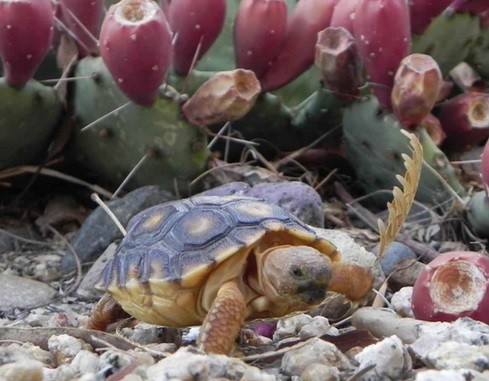An announcement made on Monday by the U.S. Fish and Wildlife Service reveals that the Sonoran desert tortoise is no longer at risk for extinction and is no longer listed as a candidate for protection under the Endangered Species Act.
The agency explains how this decision was made due in part to the various government agencies that are already committed to protect the animal in Arizona as population numbers are estimated to be anywhere from 470,000 to 970,000 adult desert tortoises across the United States and Mexico.
According to agency spokesman Jeff Humphrey, the agency along with federal and state partners will still continue to monitor the tortoises however, current scientific data and models present that there is no probability that the tortoises will become extinct in the next 10 years.
In 2010, the Sonoran desert tortoise was placed under the protection of the Endangered Species Act when the Fish and Wildlife Service discovered that increasing growth in populations in Southwest and north Mexico were threatening the habitat of the tortoise.
Apart from protection from the agency, strong local conservation efforts greatly helped in keeping the tortoise population steady where the Sonoran desert tortoise will still receive protections from the state as a species of greatest conservation need.
However, according to the vice president for legislative affairs of the Homebuilders Association of Central Arizona, Spencer Kamps, this ESA designation would have been a negative impact on housing development. He says that any endangered species listing costs time and money even if it is warranted, permitting becomes difficult since it takes longer time.
In response to this, conservationists still worry about what lies ahead for the desert tortoise. According to Taylor Jones from the WildEarth Guardians, this assessment given by the agency is questionable along with the commitments of local and federal organizations that vowed to protect the tortoise.
She believes that a conservation agreement can establish more protection for the species than local voluntary conservation agreements which becomes inevitable and will not be able to ultimately provide enough protection for the tortoises.



























